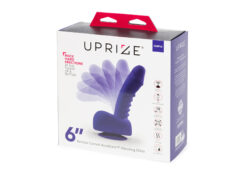At times during December and January, the UK High Street resembled that episode of Doctor Who where all the stars were twinkling out of existence, as well-known names collapsed, shed jobs or lost unthinkable sums of money.
The British Retail Consortium said that December’s retail sales were the worst since records began 14 years ago. Even Tesco suffered its most ‘disappointing’ Christmas since the early 1990s.
Yet despite this, the national newspapers and commercial television channels are still crammed with advertising from the big High Street names. In fact, the market leaders are probably spending more on advertising than ever before.
This is as it should be, because while ‘battening down the hatches’ is often the initial response to economic slowdowns, it is probably the worst way for a business to deal with the situation. It’s those companies who choose to increase their profile, through appropriate advertising and clever PR, who will benefit both in the short and long term. No business owner should enjoy being the subject of “Whatever happened to…?” discussions, as there won’t always be someone on hand to say “They’re still going, you just don’t hear much about them anymore.”
Most businesses don’t have multi-million pound marketing budgets of course, but those who are imaginative and innovative can still prosper. If consumers are not buying the product, the vendor must find out why, and then create ways of overcoming the prospective purchaser’s objections – even if this means daring to sacrifice some established business practices.
I heard of a wonderful example of this last month in America, where the property market is in a similar state to the UK’s. A company with empty houses for sale hit on the idea of giving customers a ‘try before you buy’ option, allowing them to move in to a house for a trial week so they could be absolutely sure it met their needs.
Also in America, and in a similarly stricken market sector, Hyundai recognised that the fear of losing their jobs was stopping consumers from committing to lengthy finance agreements for new cars. The car maker responded by introducing a scheme that allows buyers to hand back their leased or financed vehicles if they lose their income within 12 months of purchase.
Hyundai’s subsequent television advertising thus had a different focus. In one spot the voiceover said: “We are introducing Hyundai Assurance to show you the faith we have in you … an automaker that’s got your back – isn’t that a nice change?” Another spot said: “This is a car commercial, but it isn’t about cars. It’s about the people who buy them. A decade ago Hyundai gave people confidence with America’s best warranty. Today we’re providing another kind of confidence. We’re all in this together, and we’ll all get through this together.”
Rousing stuff, which the Americans do so much better than us, but late last year one enterprising UK car dealer also came up with an inspired idea – a ‘buy one get one free’ promotion on the £20,000 Dodge Avenger SXT 2.4 (pictured). You probably heard about it, as the announcement generated huge media coverage and all available vehicles were snapped up – even though the cars had previously been offered for sale at half price and had struggled to find buyers. Dressing up the same offer in different clothes – better ones, for the dealer, as previously he would only move one unit and receive £10,000 while here he was moving two units to the same customer and getting £20,000 – attracted the media and the subsequent coverage meant he even saved on his marketing costs.
How does this apply to adult retail? Well the above ‘big ticket’ examples might not, but the imagination that went into their creation does.
Yes, retailers can cut their prices to attract consumers, but everyone is doing that. And it doesn’t seem to be working that well. Perhaps store owners’ efforts would be better spent in creating a unique promotion and then telling the world about it through their advertising. The media loves an unusual story, particularly if it can be filed under ‘good news’ in the current climate.



![20 years of ETO: Harmony, Charing Cross Road, London [reprinted from issue 1, July 2003]](https://www.erotictradeonly.com/wp-content/uploads/2023/08/NEWS_20YEARS_HARMONY_ISSUE1-238x178.jpg)











